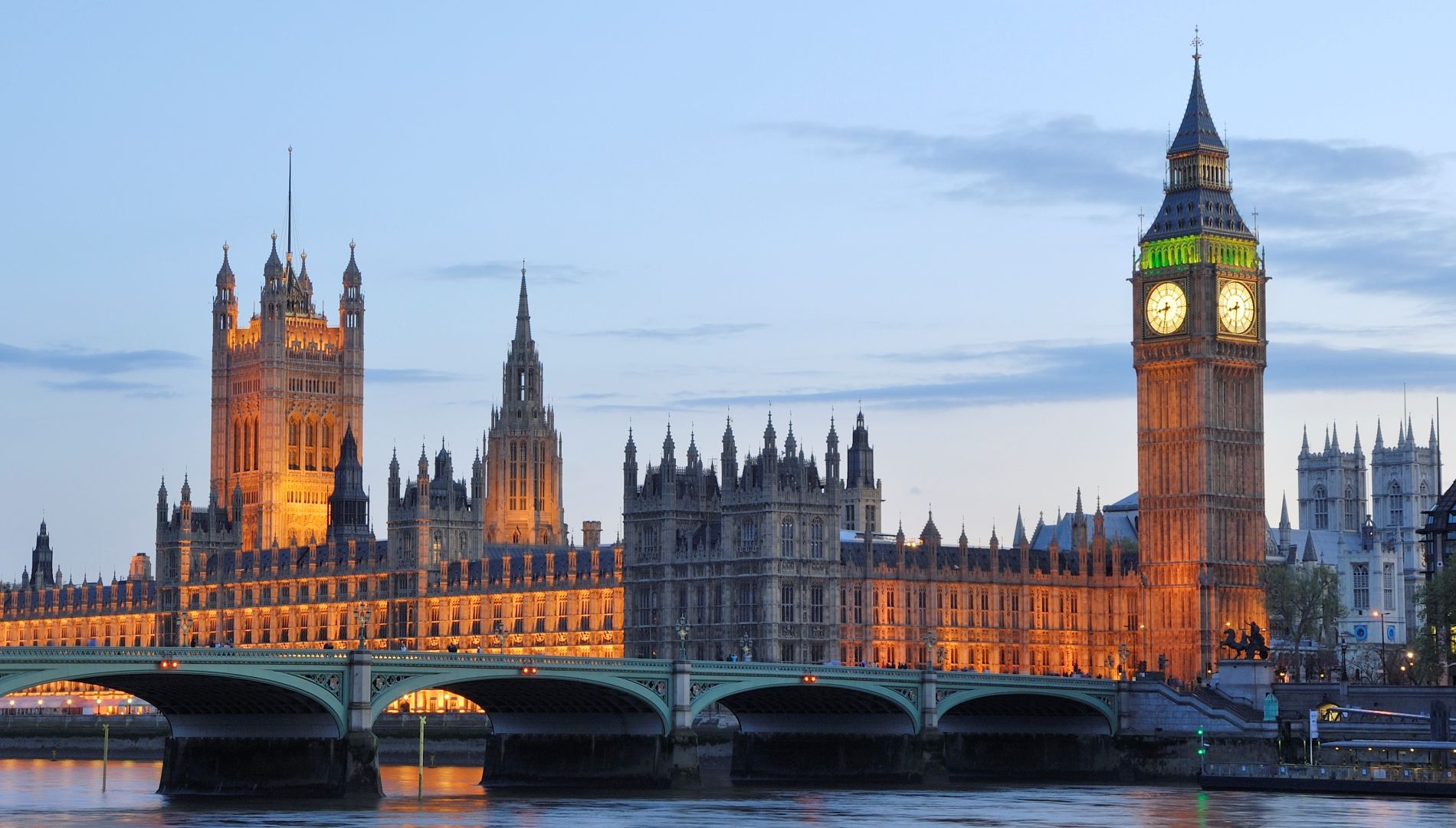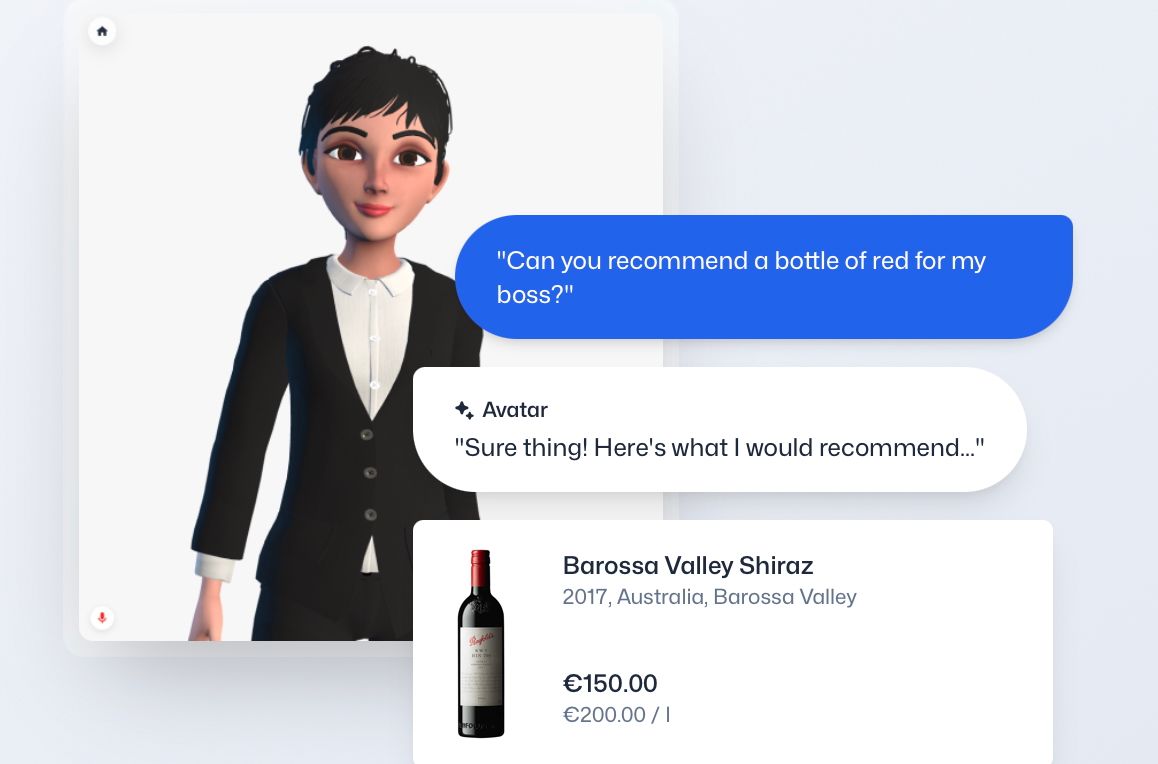The new Wine Drinkers campaign wants to get cuts on wine duty, whilst the UK Spirits Alliance is looking to “freeze and reform” spirits taxation. Here’s the inside line.
They say a week is a long time in politics. There have been times over the last year when that analogy has to be changed to just a few hours such have been the dramatic and frankly unprecedented events we have witnessed.
We have seen an almost daily churn of resignations and no confidence votes, with MPs from all sides of the house, including senior Ministers of state, voting so regularly against the government, or their political party, that it failed to make headline news.
All of which has culminated in a completely different political landscape to April 12 when we were last supposed to formally exit from the EU. We now have a new hard line Prime Minister, Boris Johnson, who seems hell bent on the UK leaving the EU on October 31 come what may – no pun intended.
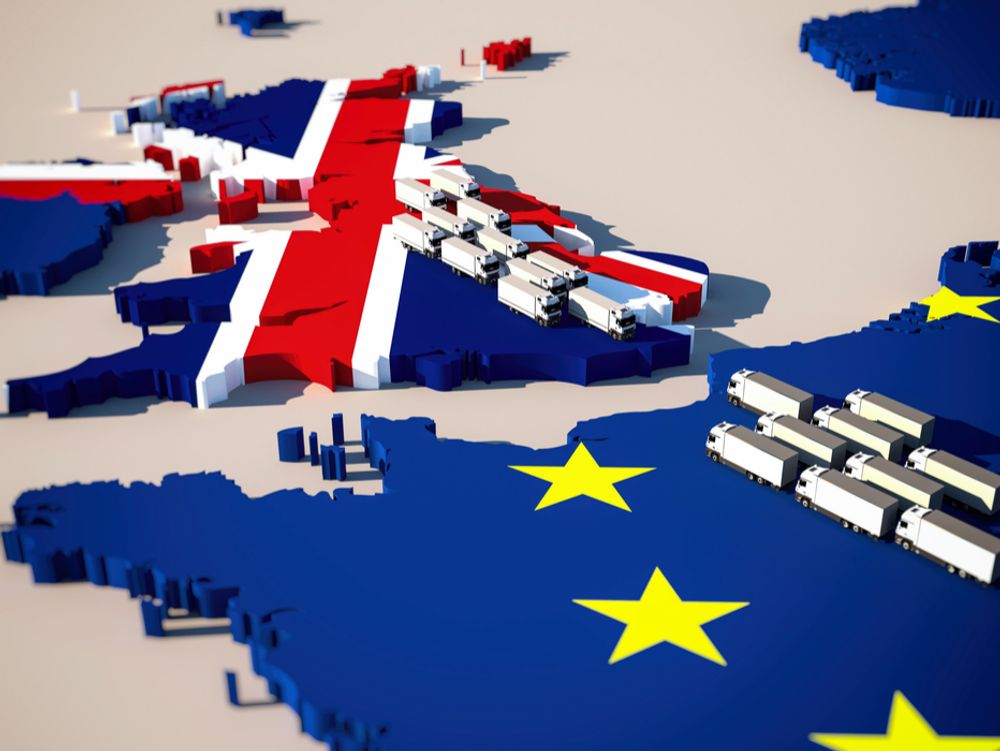
So what do you do as a political lobbyist standing on the sidelines trying to work out the best tactic to get your points of interest heard? That’s very much where the wine and drinks industry sits today.
The political landscape has changed for the drinks industry as well. Rewind five to 10 years ago and the drinks industry was under attack from all sides for the culture of binge drinking and alcohol abuse causing damage not only to people’s health, but to local communities and stretching the resources of the police and National Health Service.
That environment has dramatically changed. Consumption of alcohol is down across the board covering most demographic groups. The ‘responsibility’ agenda has been pretty much met and the steps taken by the drinks industry to put its own house in order has been widely recognised by the government.
Chancellor’s attack
But still the drinks industry is where the Chancellor and Treasury goes to raise revenues with its usual annual diet of tax and duty increases. Last year, though, we saw a very different strategy from the Chancellor. Only wine was singled out for a 3.1% inflationary duty rise. Duty on beer and spirits and all other alcoholic drinks was frozen. The Chancellor also put up wine duty in the Spring Budget last year.
The reason was muddled at best, but largely came down to the fact that beer and spirits are supporting bigger, domestic industries, particularly the well publicised pub sector. By comparison the Chancellor’s logic appeared to be the vast majority of wine is imported, and sold to people who can afford to pay more in wine bars and restaurants. Not that anyone from the Treasury has actually given a reasoned explanation for why wine was being singled out in this way. It also neatly avoided the rise and opportunity there is for wine made in England and across the UK.
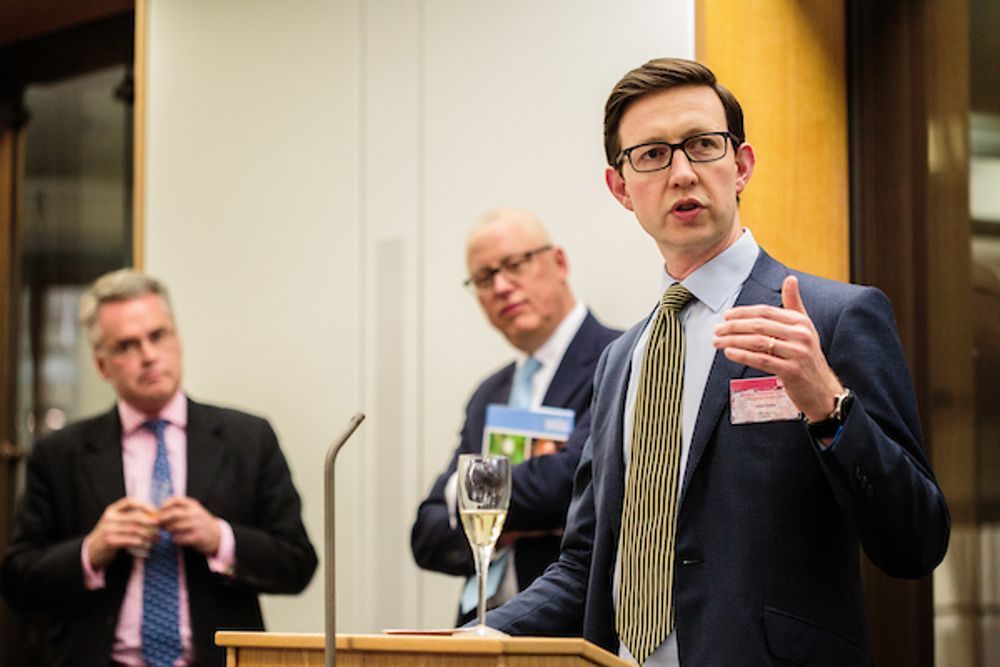
The WSTA’s Miles Beale says the wine duty rise in the last Budget was “grossly unfair”
It left the wine industry baffled, upset, hurt and mystified by why it should be treated in this way. Best summed up by Miles Beale, chief executive of the Wine & Spirit Trade Association, when he said at the time: “This inflationary rise is grossly unfair, unjustified and counter-productive. The UK is the world’s biggest wine trading nation and, as such, deserves government’s support, not punishment.”
But in a way we should have seen it coming. For as Beale explains further: “Since 2012 wine overtook beer as the largest contributor to the public purse through duty payments, and no alcoholic drink has paid more to the Treasury since then…only twice since 2003 [have] Chancellors from either party showed their support to an industry employing some 190,000 people across the country.”
Need to act now
Which is why the new Wine Drinkers campaign has been launched today that looks to change the conversation around alcohol, and in particular the way wine is being treated compared to other drinks categories like beers and spirits.
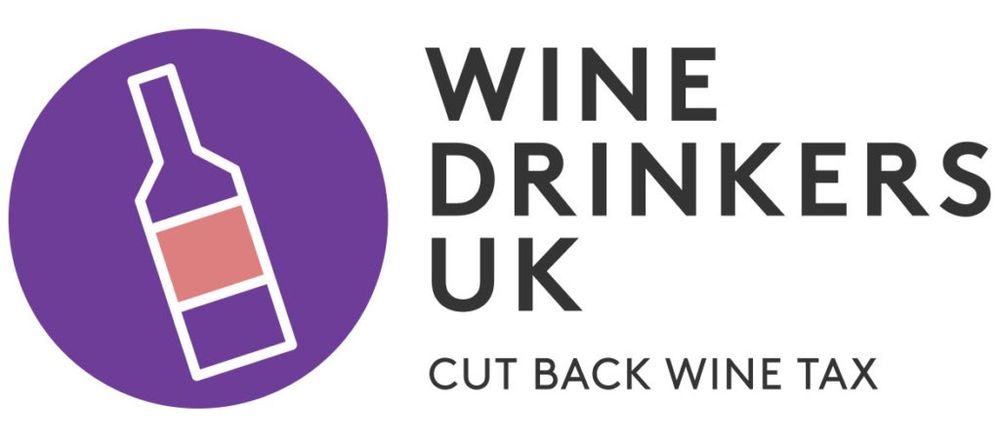
It has been set up with funds and donations from wine businesses all over the country, and whilst not fronted up by the WSTA, it will have its full support.
Beale says there was a common consensus amongst wine companies after the last Budget that the industry as a whole “needed to do more”. “Or there was a danger of worse coming down the line,” he added. “If we don’t do this then there is a chance that wine will be royally screwed. Which will make selling wine here for producers even harder and buying wine even more expensive for consumers.”
The emphasis, though, for the Wine Drinkers lobby is that this is very much a consumer first campaign and not just an industry standing up for itself. It will look to get consumers and wine drinkers directly involved and “be a voice for consumers of wine”.
It hopes to be able to carry the argument forward and make a genuine case for wine and why it should be treated in the same way the government and Treasury chooses to deal with all alcohol products.
It’s clearly also an opportunity the wine sector as a whole to do all it can to change the government’s perception of wine as a luxury imported product for people that can afford it.
Instead it hopes to present wine to ministers, politicians, and the media alike that wine is the nation’s favourite drink. Which it already is according to Wine Drinkers figures. It says among adults who drank alcohol in the past 12 months, wine was drunk by 81% of people – compared to beer (79%) and spirits (79%). When asked to choose their favourite alcoholic drink, 28% of respondents chose wine compared with 23% who chose beer and 20% who chose spirits.
Look at the numbers
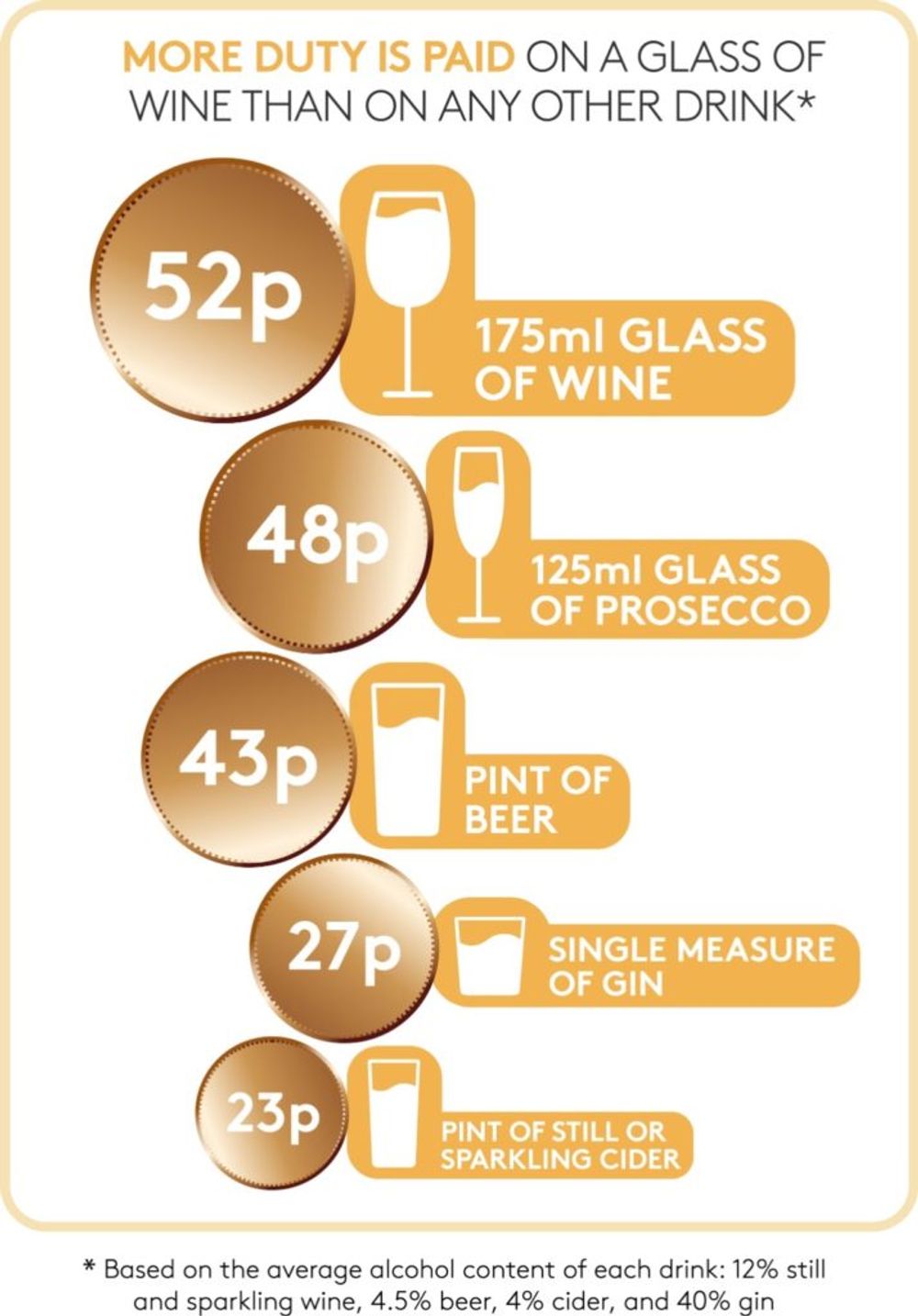
The initiative is being launched today with a whole host of facts, figures, charts and videos that all spell out just how unfairly wine is being treated. A style of drink that is also now the UK’s favourite.
Try these on for size.
- the major fact being pushed by the Wine Drinkers initiative is 50p in every pound spent on wine bought to consume at home is tax, throw in VAT and that goes up to 61% in tax of which duty is £2.23 and VAT is 83p.
- wine duty has increased by 39% since 2010, compared to 27% on spirits, 27% on cider, and 16% on beer.
- Yet 52p is spent on duty for the average 175ml glass, 48p for a 125ml glass of Prosecco, compared to 43p of a pint of beer, 27p for 25ml measure of gin, and 23p on a pint of cider.
- the wine industry is responsible for generating £19 billion in economic activity every year.
- a duty rise actually goes against good economics. After a freeze in wine duty in the November Budget in 2018, between February to August 2018, wine duty income increased by £39 million up 2% on the same time the year before.
- the UK now pays 68% of all wine duties across Europe.
The wine industry can do its bit to support the campaign by pushing and promoting such facts to its customer base. Particularly over the coming days as the campaign pushes its case in the national, local and regional media.
There are a number of tools on the Wine Drinkers website you can use to get involved. Including a templated letter that companies or individuals can personalise and send to their local MP calling for a wine duty cut, but also explaining why it is necessary.
Businesses can also send the campaign their logo to show their support and have it posted on the Wine Drinkers website.
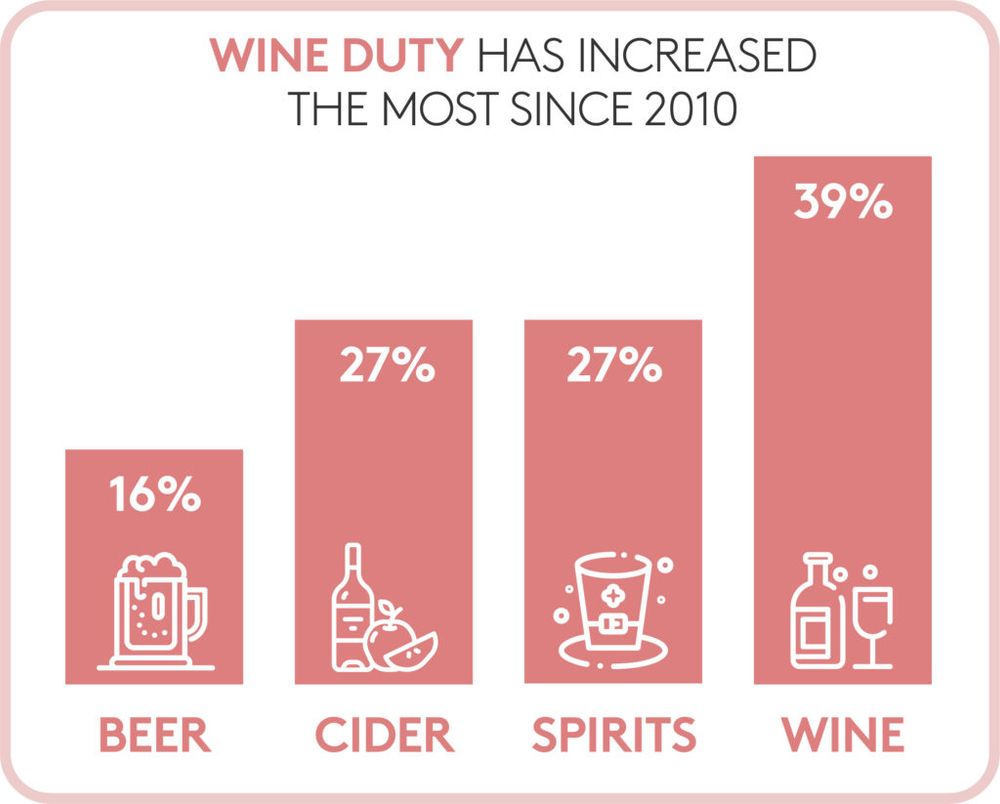
Brexit factor
Separately we can expect the WSTA in the lead up to the Budget to make the case to the government that cutting wine duty – Brexit deal or not – makes sense as it would come at at time when the UK is looking to butter up major countries around the world for free trade deals when we do leave the EU.
Just look at the top five countries on Boris Johnson’s hit list to strike free trade deals with post Brexit. The US, EU, Australia, New Zealand and South Africa.
All major wine producing countries who would be looking for a fairer tax regime in the UK to help them export their products. Will they take kindly to a country determined to only raise duties on wine, 98% of which it imports from all over the world, whilst giving tax breaks to beer and spirits that have such strong UK sectors?
“Do we want to create a tax system that becomes unattractive to these wine producing countries?” asks Beale.
Behind the scenes the WSTA is calling on the government to join the World Wine Trade Group to ensure the UK’s voice is heard loud and clear on there. At the moment it relies on the EU to do its lobbying on the group for it. “When we leave the EU, we need to be part of the WWTG,” says Beale. “We will argue loudly for wine trading with non EU producers to be part of future free trade agreements, but also arguing for UK to join WWTG to support this same aim of better non-EU wine trading post-Brexit.”

A meeting in London of the highly influential World Wine Trade Group
It is through the WWTG that all major non-EU wine producing countries have set up comprehensive trading arrangements with the EU, like customs controls. The UK needs to ensure it can make use of those same arrangements when it leaves the EU, stresses Beale.
The spirits agenda
But the whole area of alcohol duty is becoming increasingly political within the drinks industry itself. Major players in the spirits and beer industries have their own axes to grind and increasingly polarised strategies to follow. Both sectors have clearly been successful in getting a better hearing from government when it comes to duty.
It’s what is going on in the political spirits world that’s well worth keeping a close eye on.
It looks like the major global spirits giants, including Diageo, Pernod Ricard and Brown Forman are looking to take matters into their own hands. All three, along with other major spirits companies, have put some of their collective lobbying resources and efforts behind two new bodies. The UK Spirits Alliance and the World Spirits Alliance (WSA).
Both bodies are effectively looking to put the case for spirits in front of governments and decision makers, be it on a UK and global basis.
The UK Spirits Alliance was only formally set up “in the last fortnight” and already has 32 members made up of big and small distillers and spirits brands companies. These include the spirits giants, Diageo, Pernod Ricard, Brown Forman and Bacardi, followed by smaller players such as Hayman’s of London and a range of craft players including Shed 1 Gin, Batch, Copper Rivet, and the Lakes Distillery.
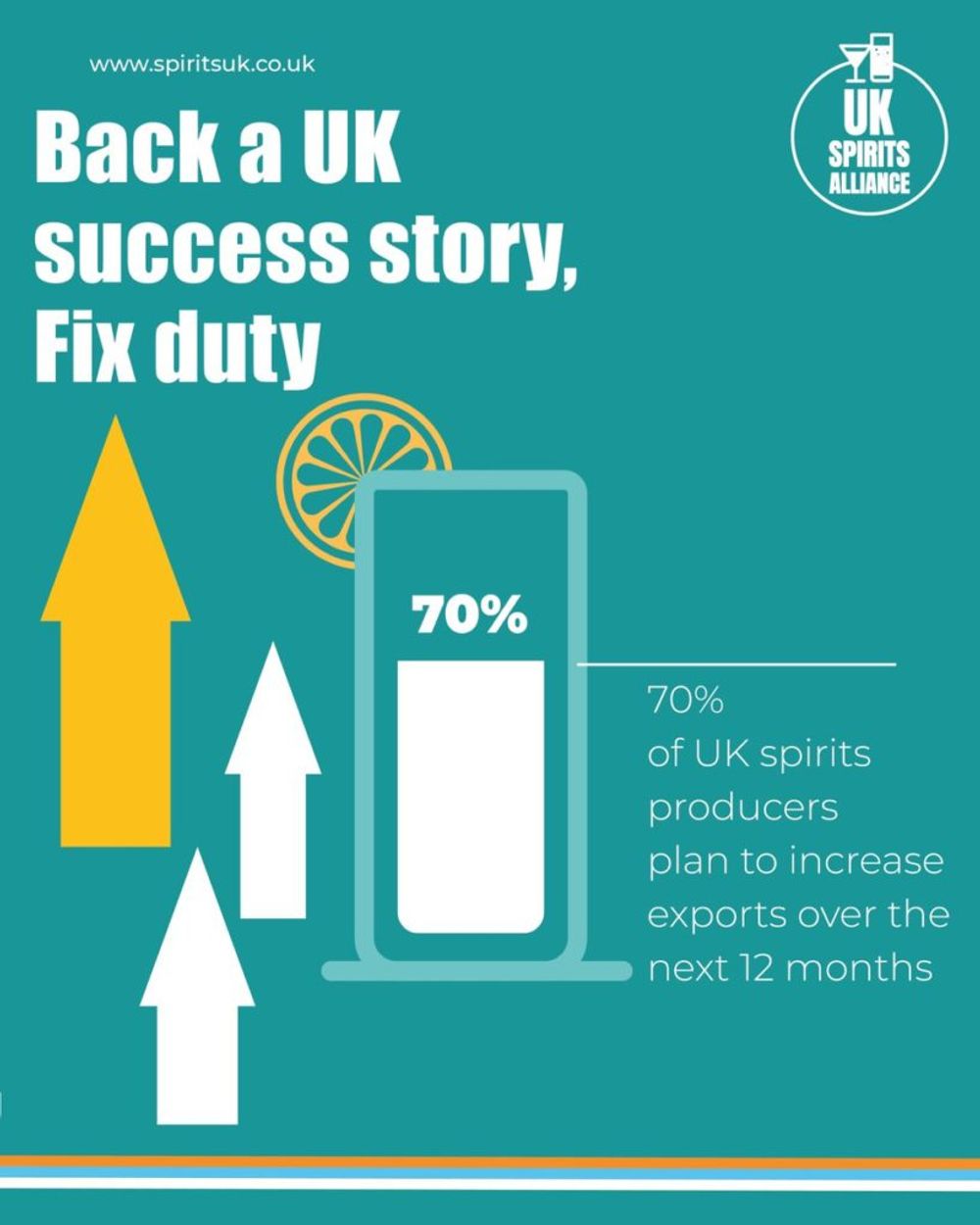
The UK Spirits Alliance is spirits producer and brand lead campaign
A spokesman for the UK Spirits Alliance told The Buyer what it wants to do: “The UK Spirits Alliance is campaigning to ensure the government backs growth, jobs, and UK business success by supporting spirits. We believe that freezing duty for the length of this parliament while reforming it will help to give our industry the security and confidence it needs in order to continue to grow, invest and create the high quality drinks options the public love.”
It’s clear from its website that its main objective is twofold: to “freeze and reform”. As yet there is no official “face” for the UK Spirits Alliance, but the PR team co-ordinating its efforts explained how it has been set up: “The UK Spirits Alliance is a campaigning coalition bringing together members of the nation’s world-renowned spirits industry to campaign on excise duty ahead of the Budget. The Alliance is supported by spirits producers from across the UK, ranging from craft and small family-run distilleries to international businesses.
“The Alliance has been funded by a number of industry members to help provide a voice for the entire sector and to ensure the importance of a fair excise duty regime is communicated to government. The spirits industry generates billions for the public finances every year, and industry members continue to invest in the UK – growth that is made possible through a stable tax regime.”
Quite how far those conversations go we shall have to wait and see, but central to its objectives is to “reform” the current UK duty system. As its official statement says: “We are calling on government to freeze excise duty for the length of the parliament – while reforming it. That means working with the spirits industry towards a duty system that provides the confidence and security business needs, allowing it to continue to grow and invest and support the UK public finances through tax revenues. Of a typical £14 bottle of gin of spirits, £10.38 is made up of tax. The tax burden on UK spirits is the fourth highest in Europe and one of the highest in the world. remains to be seen.”
So no specific measures, at least not publicly. Will it want to, for example, lobby for tax per degree of alcohol? Its website only goes as far as saying it is looking for a “stable and consistent tax regime”.
Then there is the World Spirits Alliance that is looking to do something similar but on a global scale. Its members also include Diageo, Pernod Ricard and Brown Forman along with Beam Suntory and Remy Cointreau. They want to work together to better represent their interests with governments and trade bodies such as the World Trade Organisation.
High on its agenda is working to ensure spirits get the best ride they can when it comes to trade barriers and import quotas.
Two voices
So just when you wait for a major drinks duty campaign to come along, you get two at the same time. It’s going to be fascinating to see what impact the two initiatives have, particularly as they are effectively asking for different things. A wine cut and a spirits freeze.
The Wine Drinkers campaign, though, will have its head above water making the case for a cut in wine tax, with a PR-driven initiative that looks to be the “voice of the people” in the national and local media, and direct to MPs at Westminster.
The UK Spirits Alliance looks like it will be operating more behind the scenes making the case for the spirits industry, driven by the major band owners. Again The Buyer has asked the Alliance for more information about how it is going to work in practice, which we will share in due course.
Hopefully the fact the Chancellor is being lobbied from both sides will help put drinks duty firmly on his agenda.
